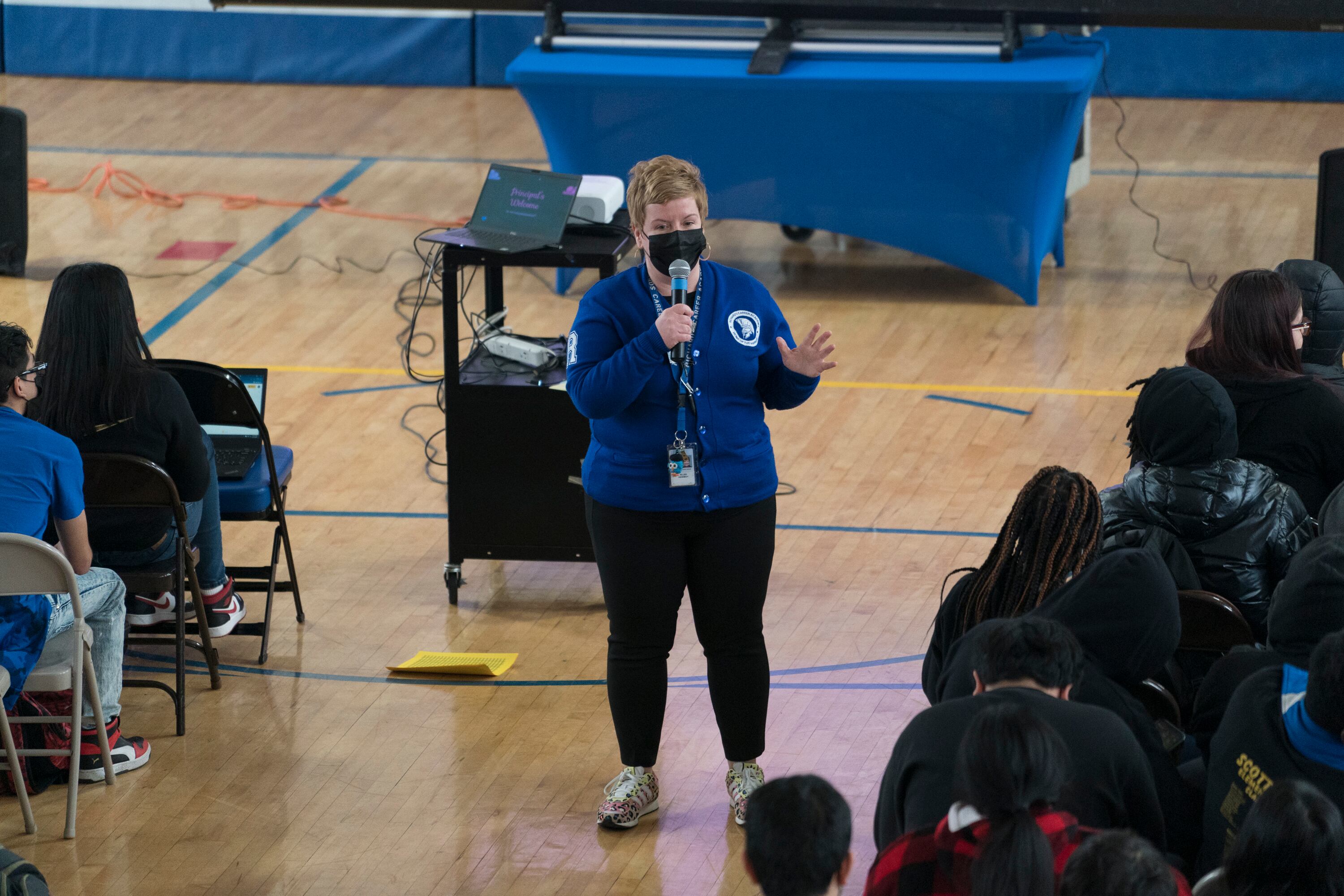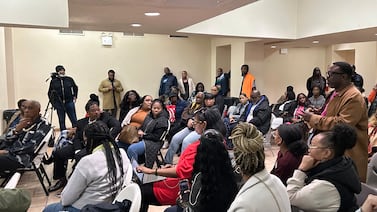Chicago Public Schools may soon have to bargain with principals and assistant principals — if Gov. J.B. Pritzker signs a bill passed by the Illinois legislature Friday morning.
The bill, which will give Chicago principals and assistant principals collective bargaining rights but prohibit them from going on strike, passed the state Senate by a 45-7 and heads to the governor’s desk for approval. If the bill becomes law, Chicago will join school districts such as New York City, Los Angeles, and Newark.
A spokesperson for the governor’s office said in an email Pritzker “looks forward to reviewing the bill now that it’s headed to his desk.”
Chicago’s principals have been unable to unionize because they were considered managerial employees under state law. HB 5107 changes the definition of managerial employees to district employees who have a significant role in the negotiations of collective bargaining agreements or who create employer-wide management policies and practices.
The Chicago Principals and Administrators Association, a professional membership organization that advocates for issues affecting principals and administrators, has fought for years for this change.
“We’ve gotten further than we’ve come before,” said Troy LaRaviere, president of the association and a former Chicago school principal, noting Friday in an interview that he’s worked on this for four years.
LaRaviere said his association is already part of the American Federation of School Administrators, an affiliate of the American Federation of Labor and Congress of Industrial Organization, and members pay voluntary dues. If signed, the bill would give the group more teeth.
The association wants to make sure that they are protecting a principal’s time to focus on what impacts students, rather than dealing with one district mandate after another, LaRaviere said.
Chicago principals have said in the past that they often don’t have a say in their working conditions and have to pick up numerous tasks to keep their schools running. This means that principals’ responsibilities vary across the city depending on a school’s needs and resources, creating long days and uncertainty for some principals.
Principals assumed more responsibilities during the pandemic to ensure that their school’s communities were protected from COVID-19, including telling families about COVID mitigations, organizing vaccine clinics, and identifying close contacts.
The stress has caused some principals to leave the profession. Chalkbeat Chicago found retirements and resignations — especially among principals and assistant principals — increased since the pandemic began in March 2020. Staffing data shows that there are more than 1,100 principals and assistant principals in Chicago Public Schools, but 50 of those positions were vacant as of Sept. 30, 2022.
If the governor signs the bill, the Chicago Principals and Administrators Association will use “our place at the table to improve conditions for principals and their schools,” LaRaviere added.
Chicago Public Schools did not support the effort to unionize principals in the past, arguing that principals are classified as managers and not subject to unionization under state law.
But following the passage by the Senate, a district spokesperson said in an email statement that Chicago Public Schools would work with school leaders as they “become eligible for possible unionization.” She added the district is committed to collaborating with school leaders to meet the needs of students, families, teachers, and staff.
“We support statewide implementation of this legislation as the tenets hold true for all school districts,” the statement said.
In a separate statement, a spokesperson for Mayor Lori Lightfoot commended the passage of the bill and encouraged the expansion of collective bargaining rights to school leaders. “CPS will continue to work hand-in-hand with principals to achieve academic excellence — a goal that should be implemented statewide,” the mayor’s spokesperson said in the email statement.
Sen. Robert Peters, D-Chicago, who championed the bill said in a statement on Friday that Chicago principals should have a voice in their working conditions, especially at a time when the district faces staff shortages.
“CPS is not only the largest school district in the state, but one of the largest in the nation,” Peters said. “With its size and staffing shortages come unique challenges that need to be addressed. I believe we should trust its principals to help create solutions to build a better work environment.”
The co-sponsor of the bill, Sen. Cristina Pacione-Zayas, D-Chicago, said in an interview with Chalkbeat that she is thrilled HB 5107 cleared the Senate Friday morning because being a principal is a thankless job and principals haven’t had much say in their workplace.
“The unionization bill now affords them some type of seat at the table, when policy is being formed,” said Pacione-Zayas. “It ensures that there’s some salary parity and representation when there are grievances. That is like a game-changer for our schools.”
Pacione-Zayas is also advocating for a companion bill that would give local school councils more transparency on who is eligible for a principal position. The councils are currently responsible for hiring and evaluating principals. Pacione-Zayas’ bill would give local school councils access to the entire eligible pool of candidates, make the rubric and scoring system from the district public, and allow due process for principal candidates who do not advance to the next stage of evaluations.
Becky Vevea contributed to this report.
Samantha Smylie is the state education reporter for Chalkbeat Chicago, covering school districts across the state, legislation, special education, and the state board of education. Contact Samantha at ssmylie@chalkbeat.org.
Mauricio Peña is a reporter for Chalkbeat Chicago, covering K-12 schools. Contact Mauricio at mpena@chalkbeat.org.






